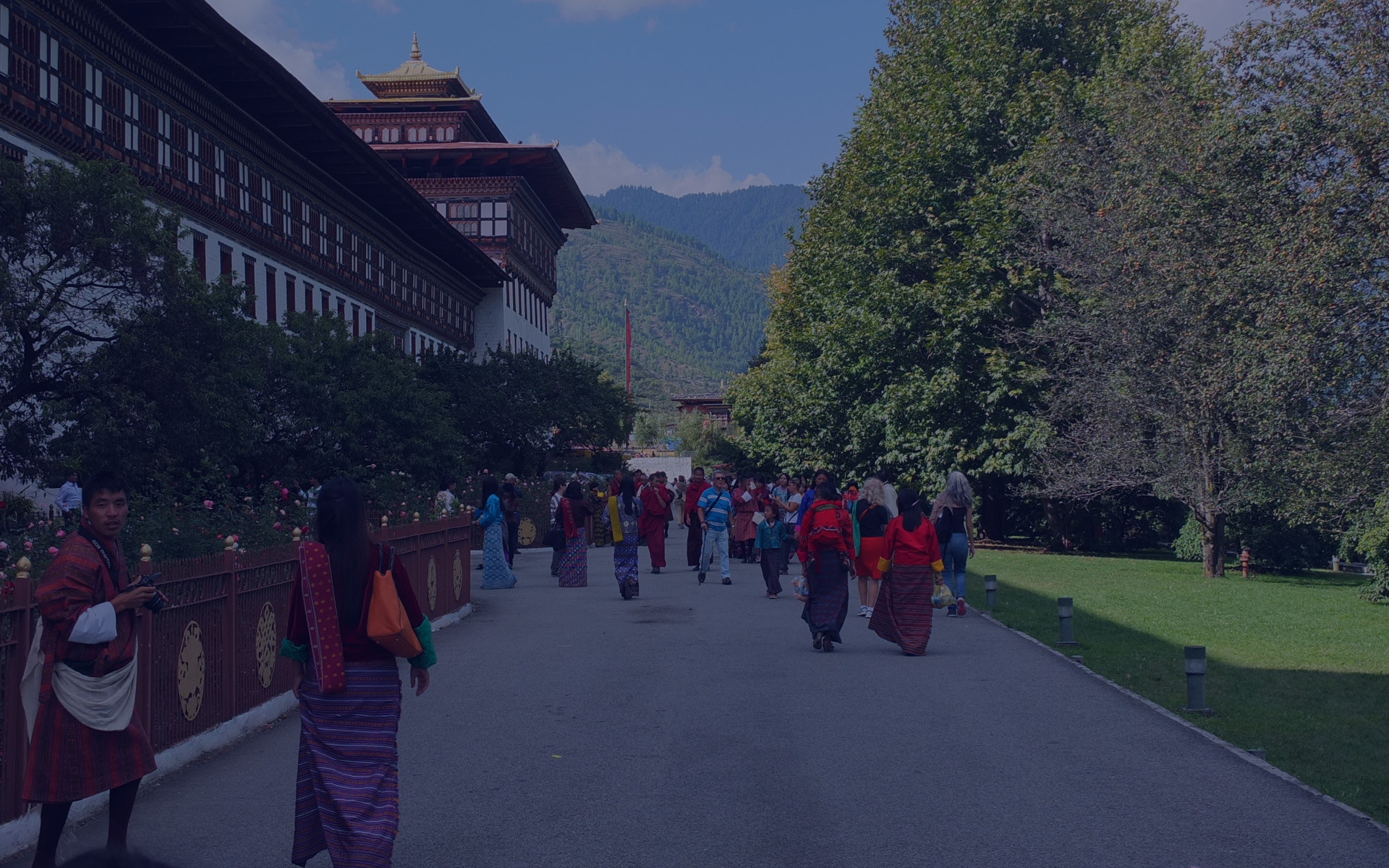Bhutan is one of the most hidden places in the world; it opened its doors to the outside world 40 years ago, a tiny country north of India where individual travel is still not allowed, and south of China where its borders are closed. An independent kingdom since 1907, it is the only country in the world that has accepted the tantric form of Buddhism, the last remaining Buddhist Kingdom. Bhutan, which ended its barter economy in 1970 and switched to money, and had the world’s last television broadcast (in 1999), feels like you are in a different dimension.
Paro is one of the most difficult international airports in the world, with only a limited number of pilots able to land. Despite this frightening information, perhaps the most impressive plane ride is the magnificent view of Everest along the way, while gliding through the mountains during the descent, the plane almost touching the trees with its wing on the last slope, landing you in a fascinating geography. The reason it is said that “The only straight road in Bhutan is the runway of Paro airport” is that there is only one highway in the country. It is quite simple; you return the same way you came down the winding road you landed on.
The fortress-monasteries called dzong are used for both religious and administrative purposes. When entering these structures, where the woodwork and colors dazzle, men have to wear shawls called kamne and traditional clothes called gho. Punakha Dzong is a fascinating fortress-monastery, the winter palace of the head priest Je Kenpo, built at the confluence of two differently colored rivers called Mo Chhu and Pho Chhu (Mother and Father Water). Dochula Peak, where 108 stupas are located at 3,000 meters against the Himalayas, is a breathtaking place. It is priceless to have come across the festival in Thimphu from the very first day. Buddhist teachings are told in dances dominated by shaman elements, and mantras are recited while Bhutanese people watch the shows in their most elegant clothes. Immersing yourself among thousands of Bhutanese people, becoming alienated from everything you know, are, and know, and feeling infinitely peaceful on the other hand, was the first sign that an emotional bond had been established between me and Bhutan.
Being a country like a staircase with an altitude ranging from 100 meters to 7,500 meters, brings with it very different geographical conditions. Since you do not go above 3,500 meters, where the central life is, as a tourist, there are no challenging weather conditions. This is a fairy-tale country with a nature drawn with watercolors, shades of green, forests, butterflies, birds, flowers, and roaring rivers. An important criterion for us Turks; you do not go hungry. In fact, we can say that the most successful cuisine of that geography is here. In my opinion, the most delicious hot peppers in the world, my favorite dish is pepper cheese potatoes and red rice are the ones that remain in my mind. Bhutan is the only country in the world where the sale of tobacco products is prohibited. You are allowed to bring an acceptable amount of tobacco products into the country by following the rule of not consuming in public places and paying 100% tax.
The most memorable feature of Bhutan on the world stage is the “Gross Happiness Rate” that the current king’s father put forward at the United Nations Meeting in 1972. This is now a report that is accepted worldwide, measured statistically and published. There really is such a thing as “Gross Happiness”; all children are happy when they go to school, people produce enough for their families on the fields they own even if they are poor and they are happy, everyone you look at has a smile on their face.
I said goodbye, saying, “May this fairy-tale land always remain pure, may the Bhutanese always be happy, may the king live long!” Nga cheu lu ga Bhutan…
This article was published in the December 2014 – 70th issue of Retail Türkiye Magazine.


